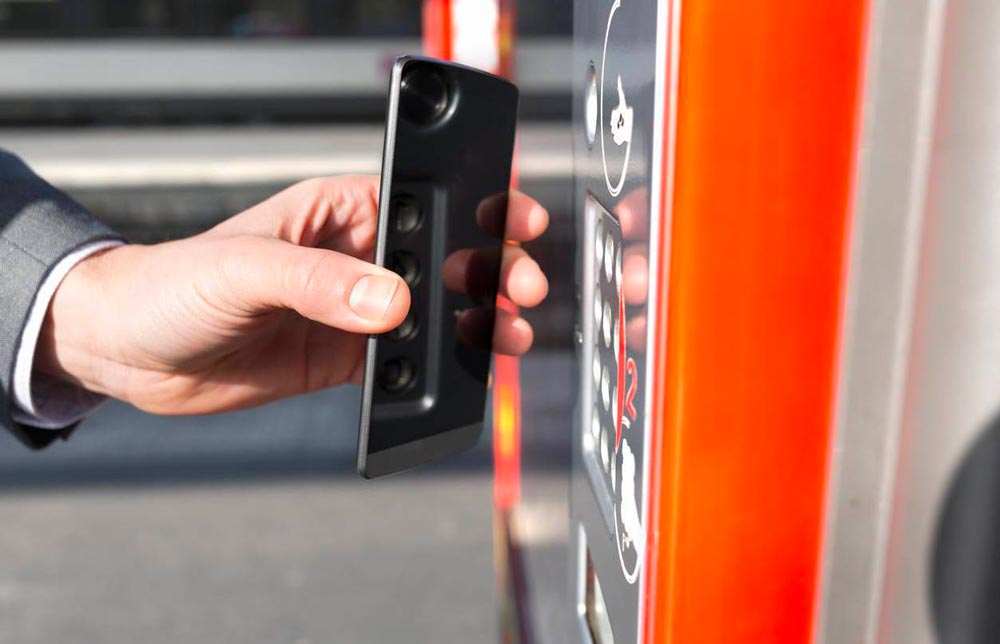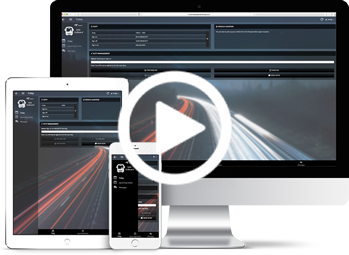Shared and Smart Ticketing
Local authorities need to get more people using public transport. The challenges of climate change and environmental pollution, growing urbanisation and ageing populations mean that running convenient and efficient public transport networks is critical.
This, of course, is even more challenging – and even more important – in a post-Covid world.
But passengers cannot be forced into making the choice to use public transport; we need to make it the best option so that they want to. Therefore, if individuals and families are to forgo using their own vehicles, public transport must be made as reliable, efficient and, ultimately, just as convenient as driving a car. Today, in the fragmented UK transport market, ticketing can sometimes feel a significant barrier to an easy journey. A journey involving two buses, metro and a long-distance train may
require four separate tickets – each subject to different rules and tariffs.
In other words, smart and shared ticketing initiatives are vital from a convenience perspective. Public transport executives and other combined transport authorities have long recognised the value in enabling a range of journeys to be paid for via a single smart card. The trouble, of course, is that putting such schemes into practice can be rather complex.
Today’s shared ticketing schemes are largely powered by a standard Department for Transport (DfT) backed standard called ITSO, which requires substantial investment in back-office technology, as well as a sharing agreements between all scheme participants.
This makes adoption of such schemes costly and often problematic. Is there an alternative?
Understanding ITSO and HOPS
First, let’s get to grips with ITSO, which has been enabling smart ticketing in the UK since 2002. ITSO is both a specification for enabling smart ticketing, and the body which supports members in setting up and running ITSO-compliant smart ticketing programmes.
In other words, it helps transport operators to ensure the security of the smart cards used by passengers, to manage transaction data through a smart ticketing programme, and to share data between interoperable schemes – such as those run by different operators within the same area.
A crucial part of ITSO smart ticketing programmes is the HOPS (Host or Operator
Processing System), which is the smart ticketing transaction processing engine built to the DfT’s ITSO specification. This backend system is responsible for collating all transactions and determining settlements between the different scheme participants. Because of the challenges of getting the HOPS certified, there are only a very small number of suppliers for such systems.
In practice this means that UK transport operators wishing to implement a smart ticketing scheme have little choice but to participate in the same ITSO programme – and invest in the same costly back-office HOPS system.
Things become even more complicated when combined transport authorities implement shared ticketing schemes across multiple operators – for example, creating a single smart card which passengers can use across all bus companies within a particular county or city. In these instances, every operator within the scheme must separately implement the same technology, creating a high barrier to entry to new operators joining a shared scheme.
In turn, this makes it harder for such schemes to optimise convenience for passengers, because it is more likely that certain operators will not participate. So what was intended as a single smart card for use across an entire area ends up as something rather more piecemeal.
If a multi-operator journey cannot be made using a single smart card, then the vision of assured passenger convenience is lost.
The blockchain alternative?
In response to these issues, the Trapeze team have been focused on exploring potential ways to offer passengers the benefit of multi-operator ticketing while avoiding the need for a complex back-office through which all transactions have to be channelled.
This approach recognises that being limited to a single (costly and complex) choice for any element of enterprise technology is never the best option – either for the organisations deploying that technology, or their customers.
Having reviewed the options, we believe the open-sourced blockchain algorithm could form the basis of such an approach.
Blockchain, which is perhaps best-known as the algorithmic technology underpinning
cryptocurrencies such as Bitcoin, could offer a true open source alternative when it comes to shared and smart ticketing.


“… passengers cannot be forced into making the choice to use public transport”

One view of the truth
In simplest terms, a blockchain is a single distributed ledger. Individual users cannot add a new line or transaction to the ledger without other users receiving a copy of that line – which means that it is impossible to falsify or hide transactions. Each participant in the blockchain sees the same single version of the truth at all times, and therefore all can trust it completely.
Importantly, there is no central authority in blockchain, and the algorithm ensures that everyone can trust updates to the distributed ledger without explicitly knowing the other participants.
Additionally, because there is no central registry of participants, new participants can join the ledger without the need for complex data sharing agreements.
This technology has proven phenomenally useful in creating digital currencies which can be used worldwide – and exactly the same principles could underpin the shared ticketing systems of the future. In such a system, each passenger – and every bus operator – would have access to the same blockchain ledger. It would track each individual transport user’s journey and associated spend, adding a new line to the same ledger for each journey, no matter which operator had provided the transport.
In recent years, there have been further evolutions of the blockchain algorithm. In
particular, Ethereum adds the ability for trusted programs to perform the update to the ledger. Such an approach could be expanded to support a distributed ticketing system allocating revenues based on previously agreed principles for a multi-operator trip. From the passenger perspective, convenience would be absolute. They would simply load a certain value onto their blockchain account, through whichever public transport executive was overseeing the scheme. That executive would be in charge of reconciling the ledger, ensuring that the appropriate sums were distributed to each operator.
Yet from the operator perspective, convenience would also be maximised. The need to develop and maintain shared technology platforms would be reduced for a start.
However, the cause of multi-operator journeys would be advanced by far more than simple cost savings.
A shared ticketing journey could be accurately calculated using the blockchain ledger without any direct contact from operators. This would mean shared tickets could be provided for bespoke user journeys, increasing revenue as users opt for this more convenient approach to transport.
Here to help
Contact us and speak with one of our specialists:
+44 (0) 808 281 1039
More Info
About Us | Careers | Contact Us | Legal | Privacy
(c) 1999 – 2021 Trapeze Software ULC. All rights reserved
Trapeze Group respects your privacy

